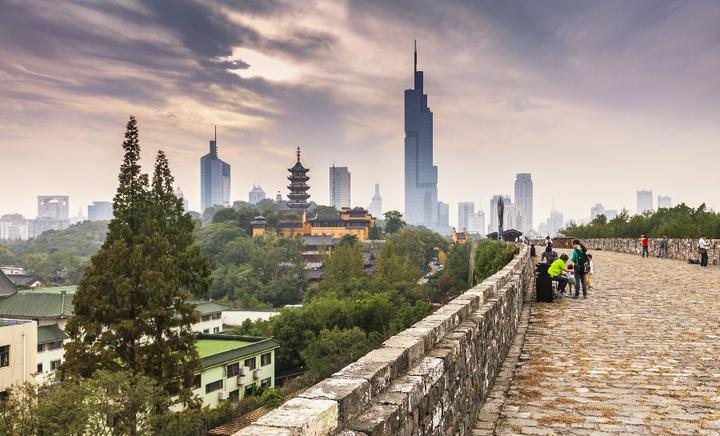Many people are asking why Nanjing is called Moling, and today I will explain to you why Nanjing is called Moling.
Moling (秣陵) is the name of Nanjing in the Qin Dynasty, placed by Qin Shi Huang in the 37th year (210 BC), belonging to Huiji County. In 210 BC, Qin Shi Huang toured the east, passing through Danyang (present-day Danyang, Jiangning District), southwest of Moling Pass, and returning from the river to the north. The accompanying warlocks believed that Jinling Mountain was steep and had the qi of the Son of Heaven, so Qin Shi Huang dissipated the king's qi and changed Jinling to Moling. "Mo" means forage, which means that this place should not be called Jinling, but can only be reduced to a horse ranch.

After Qin Shi Huang unified the Six Kingdoms, in order to show his supreme authority, he made five tours, two of which passed through present-day Nanjing. In 210 BC, Qin Shi Huang returned from his fifth tour, and when he arrived at Jinling, several accompanying Qi magicians saw the beautiful mountains around Jinling and the terrain was dangerous, so they said to Qin Shi Huang: Jinling has tianzi qi. When Qin Shi Huang heard this, he was greatly displeased, and ordered people to dig Fang Shan, so that the Huai Water flowed through Jinling, dissipating wang qi, and changing Jinling to Moling. "Mo" means forage, which means that this place should not be called Jinling, but can only be reduced to a horse ranch.
Moling is a famous town in Jiangsu with a history of more than 2,000 years, qin shi huang unified the six kingdoms and then placed moling county, and has been the political, economic and cultural center of Jiangnan since the Qin and Han dynasties. It was not until the Three Kingdoms period that Sun Quan moved the center to Jinling. Therefore, there is a saying that "there is a moling first, and then there is a jinling". Wu Jingzi, a literary giant of the Qing Dynasty, praised: "After the new rain in Jiangcheng, the apricot blossoms are deep in Moling Pass." Moling is located in the middle of the subtropical, belongs to the subtropical wet climate, the four seasons are distinct, the average annual temperature is 15 degrees, the precipitation is 1000 mm, the natural environment in the area is beautiful, the water quality is clear, and the peaks are stacked, which is an excellent place for human habitation.
At present, Moling is Moling Subdistrict, Jiangning District, Nanjing.
There is also a story about the Qinhuai River, which is also related to Qin Shi Huang:
The Qinhuai River, a right-bank tributary of the lower Yangtze River in China. In ancient times, it was called Longzangpu, which was called Huaishui in the Han Dynasty, and changed its name to Qinhuai after the Tang Dynasty. The Qinhuai River has two sources, the north source Jurong River originates from the southern foothills of Baohua Mountain in Jurong City, and the south source Lishui River originates from donglu Mountain in Lishui District, Nanjing.
It is said that Longzangpu originally did not flow through the city of Nanjing, and Qin Shi Huang had the changlong near Fangshan Mountain, where the water flow converged, to cut it off, so the water diverted to the north and passed through the city of Nanjing, in an attempt to wash away the royal qi of Nanjing. Longzangpu was also changed to Qin as a sign of "conquest" by Qin Shi Huang. This is the origin of the name of the Qinhuai River.
Square Mountain
But Qin Shi Huang did not really suppress the Qi of the Heavenly Son in Nanjing. Less than five hundred years after the warlock said, Nanjing produced the first emperor, Sun Quan. But this was no longer meaningful to the Qin Empire, because the Qin Empire, which was trying to survive forever, collapsed three years after the death of Qin Shi Huang.